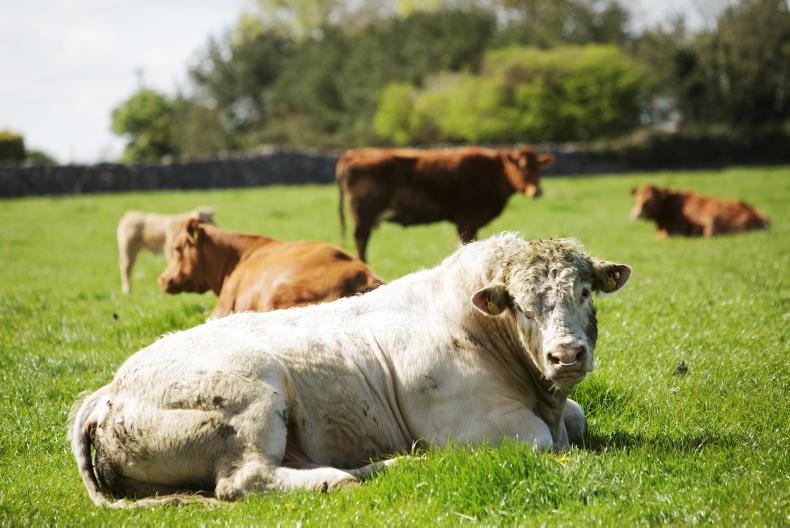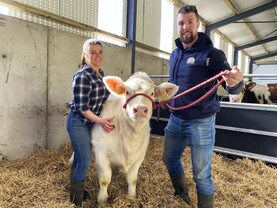The British Charolais Cattle Society has implemented new bylaws to no longer accept cattle carrying the progressive ataxia (PA) gene into its herd book.
The bylaws, updated at the end of June, state that all imported animals must now be tested free of the gene. The sale also applies for imported embryos and imported semen.
Similarly, all UK-bred stock need to be DNA-profiled after their first calf, if transferred for breeding or if sold at a society sale and when profiled need to test free of the gene.
While there is no doubt genes which cause issues such as progressive ataxia aren’t good for any breed, to eliminate all carriers without prior notice or strategic planning could have massive consequences.
It is estimated that 13% of the Charolais population could be affected by the gene. This could see registrations for the society drop by that much or more in the space of one year.
A more proactive approach would be to undertake a breeding programme to combat the increase of the gene mutation, which would eventually eliminate the gene from the population.
This could be done by compulsory testing, as is now in place, and eliminating double carriers from the herd book. With gene status for the entire population, breeders could then avoid crossing two single carriers.
This would eliminate the risk of a double carrier and the gene being fully expressed, which is when most issues arise.
Breeding programmes such as the above have been implemented in many other breed societies in recent years for other gene mutations.
The British society has said it is taking the stance following conversations with the French society, which has also implemented the measure to fully eliminate PA from the herd book.
This change in bylaws could have serious consequences for Irish breeders who export many of the country’s top bulls and heifers to Northern Ireland and mainland UK.
If breeders don’t have animals tested for the gene, then it pretty much eliminates them from the buying list of any British Charolais Cattle Society member.
The Irish Charolais Cattle Society said: “The society is aware of the new rules implemented by the British Charolais Cattle Society regarding progressive ataxia. Obviously, these rules will affect our members selling animals into the UK. It is something which will be discussed in detail by our council over the coming weeks.”
Progressive ataxia (PA) of Charolais cattle is an inherited neurodegenerative disease of the central nervous system. It is caused by abnormal development of the myelin sheath that supports and insulates axons of nerve fibres in specific parts of the brain and spinal cord.
PA is characterised by onset of unsteady gait and stiff hind limbs, with gradual worsening of the condition that results in an inability to stand and permanent recumbency (lying down). Animals have to be euthanised, as there is no effective treatment for this condition.
Other signs of the disease include head bobbing when excited and, in females, irregular pulsatile urination.
Onset of the disease is typically around 18 months of age, but can occur as early as six months or as late as three to five years.
The evolution of the disease is also variable, from a few weeks to more than 18 months from onset of signs.






 This is a subscriber-only article
This is a subscriber-only article











SHARING OPTIONS: